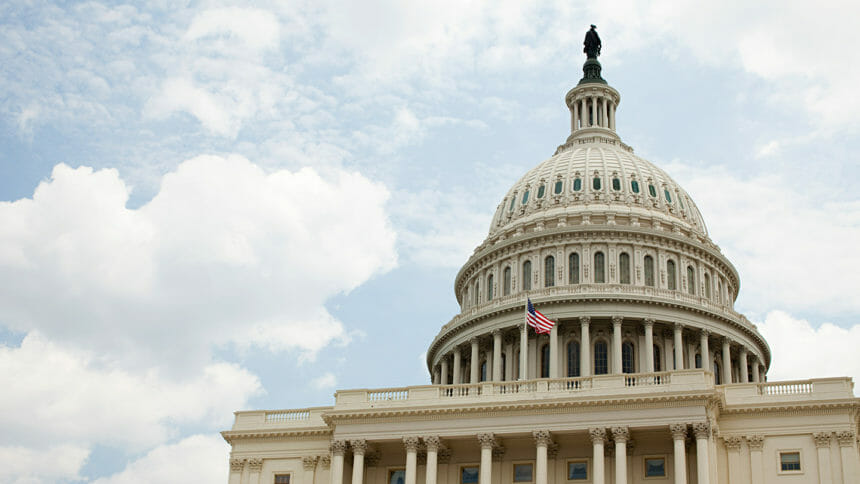
A Senate bill introduced Wednesday would count days spent under ‘observation status’ in a hospital toward Medicare’s three-day qualifying stay requirement.
The Improving Access to Medicare Coverage Act is a companion to a House bill by the same name introduced last August.
Currently, federal regulations require patients be admitted to a hospital for three days to have post-acute care services covered by Medicare, but hospitals have increased their use of “observation status” in recent years. Patients often do not know when they’ve been placed in an observation stay.
Adding to the confusion, the three-day stay rule was widely exempted during the pandemic but a waiver was revoked along with the end of the public health emergency last May.
Sens. Sherrod Brown (D-OH), Susan Collins (R-ME) and Sheldon Whitehouse (D-RI) said the bipartisan legislation would update the observation stay loophole “to help protect seniors from high medical costs for the skilled nursing care they require after hospitalization.”
“When seniors require hospitalization, their focus should be on their health and getting well, not on how they were admitted, yet currently, many older Americans face severe financial consequences due to the distinction between an observation stay and inpatient admittance,” Collins said in a statement.
“This bipartisan bill would deem time spent in observation status as inpatient care for the purpose of the Medicare three-day prior hospital stay requirement for skilled nursing care, which will help insulate older Americans from undue out-of-pocket costs and ensure that they get the care that they need,” she added.
Brown said the change would save money on hospital readmission costs.
But federal regulators and researchers have raised questions about how changes to the three-day stay policy would impact Medicare spending.
An April 2023 study in JAMA Internal Medicine found that removing a hospital stay as a requirement for Medicare-covered nursing home care shifted many long-term residents to more costly skilled care coverage.
And John Kane, SNF lead for the Centers for Medicare & Medicaid Services, also noted last spring that a Congressional Budget Office estimate had found that removing the 3-day stay requirement altogether could increase the cost of SNF care by $60 billion over 10 years.
It was unclear Wednesday how many more stays might be covered should observation stays be counted toward the three-day stay requirement, or how much that could drive up Medicare costs.
Alex Bardakh, senior director of advocacy and strategic partnerships at AMDA — The Society for Post-Acute and Long-Term Care Medicine, said his organization had supported a change to the three-day rule for years.
“The three-day stay requirements along with not counting observations stays towards that requirement is so archaic that we first advocated for a solution in the mid 90s,” he told McKnight’s Long-Term Care News on Wednesday. “This requirement simply has no place in modern healthcare system. If we are serious about building a comprehensive healthcare system that focuses on patient needs, we must pass this legislation. This requirement continues to cost the Medicare system millions of dollars and only makes patient care worse.”
In addition to changing Medicare rules moving forward, the new Senate bill proposes a 90-day appeal following passage. Patients who had a qualifying hospital stay since Jan. 1, 2024, but were denied skilled nursing care would be eligible.
The legislation has been endorsed by 19 national patient and provider advocacy organizations, the sponsors noted. The bill’s House companion was backed by 30 associations when it was introduced last year.
At the time, American Health Care Association President and CEO Mark Parkinson said “seniors who spend three days in a hospital, regardless of their inpatient or observation designation, must be able to recover safely in a skilled nursing facility when they need it without fear of considerable out-of-pocket costs.”
“It’s time to eliminate this confusing, costly policy and barrier to post-acute care, and this legislation will best serve our Medicare beneficiaries as well as the Medicare Trust fund,” he added.




